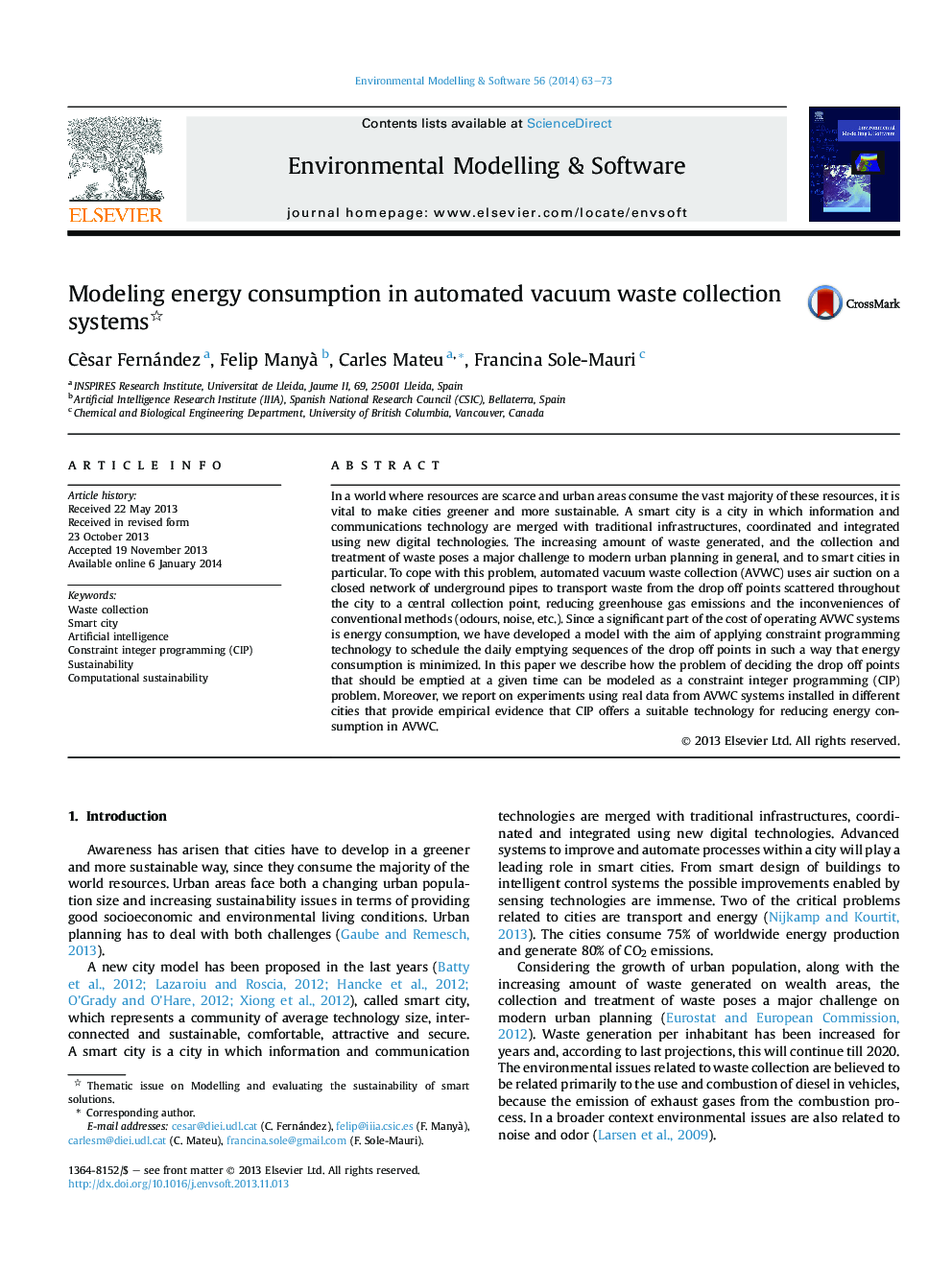| Article ID | Journal | Published Year | Pages | File Type |
|---|---|---|---|---|
| 568473 | Environmental Modelling & Software | 2014 | 11 Pages |
•Vacuum waste management has advantages w.r.t. traditional truck based one.•Power required to function: up to 35% of cost of operation.•Reducing power usage has huge impact on cost and CO2 footprint.•Proposed CIP models are quick and good optimization for AVWS in real world plants.•We propose the use of learning techniques for rolling daily models.
In a world where resources are scarce and urban areas consume the vast majority of these resources, it is vital to make cities greener and more sustainable. A smart city is a city in which information and communications technology are merged with traditional infrastructures, coordinated and integrated using new digital technologies. The increasing amount of waste generated, and the collection and treatment of waste poses a major challenge to modern urban planning in general, and to smart cities in particular. To cope with this problem, automated vacuum waste collection (AVWC) uses air suction on a closed network of underground pipes to transport waste from the drop off points scattered throughout the city to a central collection point, reducing greenhouse gas emissions and the inconveniences of conventional methods (odours, noise, etc.). Since a significant part of the cost of operating AVWC systems is energy consumption, we have developed a model with the aim of applying constraint programming technology to schedule the daily emptying sequences of the drop off points in such a way that energy consumption is minimized. In this paper we describe how the problem of deciding the drop off points that should be emptied at a given time can be modeled as a constraint integer programming (CIP) problem. Moreover, we report on experiments using real data from AVWC systems installed in different cities that provide empirical evidence that CIP offers a suitable technology for reducing energy consumption in AVWC.
